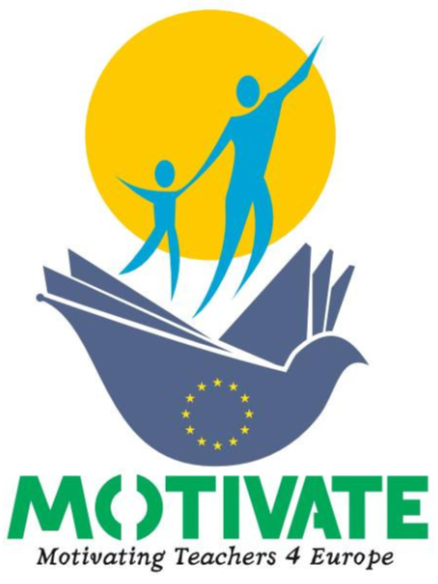1. About the Conference
Τhe Jean Monnet program “Motivating Teachers 4 Europe” (MOTIVATE) and the Laboratory of Education Policy, Research, Development and Interuniversity Cooperation of the Department of International and European Studies of the University of Piraeus, organize the Conference “Studying, Teaching, Learning the European Union II” which will take place on January 18-19 2025 at the premises of the University of Piraeus, 80 Karaoli & Dimitriou St, Piraeus
The aim of the Conference is to discuss and exchange ideas and views on the main actions of MOTIVATE, as well as to disseminate the results of the project to the wider local and academic community.
2. Conference Themes
The sessions include, but are not limited to, the following themes:
- Study, Teaching, and Learning of the European Union: Approaches and methodologies for teaching the EU in schools.
- Study and Teaching of Human Rights within the EU Framework: Integration of human rights education into the European framework.
- Innovative Approaches, Methods, and Practices for Teaching the EU in Schools: New methods and practices for introducing the EU into the educational process.
- STEAM Education: Interdisciplinary teaching combining science, technology, engineering, arts, and mathematics.
- Models of Differentiated Instruction: Approaches that take into account the individual needs and learning styles of students.
- Development of Good School Practices on EU Issues: Presentation of good practices in schools for understanding EU topics.
- The Role of Schools and Teachers in the European Education Area: The role of education in promoting the values and policies of the EU.
- Digital Literacy, Technologies, and EU Policies: The role of the EU in supporting digital literacy and technology use in the educational process.
- Inclusive Education in the EU: Strategies to promote the inclusion of all students, including vulnerable groups.
- Environmental Education and Sustainability in the EU: How teachers can integrate sustainability education into the school curriculum.
- Life-Long Learning and Professional Development of Teachers: EU programs supporting the continuous training and development of teachers.
- Intercultural Education: Promoting understanding and respect for different cultures within the European educational framework.
- Gender Equality Education: Teaching about equality and combating gender stereotypes in education.
- EU Educational Policies: Discussion on EU policies regarding education and lifelong learning.
- Social and Emotional Learning and Crisis Management: Developing social and emotional skills and crisis management strategies in EU schools.
- Active Citizenship in the EU: Educational practices to promote active participation of students in civic life and decision-making processes.
- EU Educational Initiatives and Exchange Programs: Discussion on opportunities offered by programs such as Erasmus+ for students and teachers.
3. Scientific Committee
- Foteini Asderaki, Professor, Department of International and European Studies, University of Piraeus.
- Aggelos Kotios, Professor, Department of International and European Studies, University of Piraeus.
- Spyridon Roukanas, Vice Rector of Academic and Administrative Affairs, Professor, Department of International and European Studies, University of Piraeus.
- Panagiotis Grigoriou, Professor, Department of Sociology, University of Aegean.
- Petros Liakouras, Professor, Department of International and European Studies, University of Piraeus.
- Evangelia Karagiannopoulou, Professor, Department of Psychology, University of Ioannina.
- Fotios Milienos, Assistant Professor, Department of Sociology, Panteion University.
- Sofia Mastrokoukou, Assistant Professor, Department of Political and Social Studies, University of Salerno.
- Thomas Babalis, Professor, Department of Primary Education, National and Kapodistrian University of Athens.
- Konstantina Tsoli, Associate Professor, Department of Primary Education, National and Kapodistrian University of Athens.
- Yannis Roussakis, Associate Professor, Pedagogical Department of Secondary Education, National and Kapodistrian University of Athens.
- Kafenia Mpotsoglou, Professor, Special Education Department, University of Thessaly.
- Eleftheria Beasidou, Assistant Professor, Special Education Department, University of Thessaly.
- Tharrenos Bratitsis, Professor, Department of Early Childhood Education, University of Western Macedonia.
- Vassiliki Pliogou, Associate Professor, Department of Early Childhood Education, University of Western Macedonia.
- Nikolaos Papadakis, Professor, Department of Political Science, University of Crete.
- Christina Kontogoulidou, Laboratory Teaching Staff, University of Piraeus.
- Sofia Goria, Laboratory Teaching Staff, University of Thessaly.
- Antonia Samara, Laboratory Teaching Staff, National and Kapodistrian University of Athens.
- Dr. Stylianos Tzagarakis, Political Scientist, University of Crete.
4. Organising Committee
- Maria Katsigiannh, PhD, University of Piraeus
- Olga Sideri M.Sc, University of Piraeus
- Petros Tsachouridis B.Sc, University of Piraeus
- Kalliopi KotsareliB.Sc, University of Piraeus
5. Information on Submission of Abstracts and Papers
To avoid any inconvenience in attending the conference, please pay attention to the deadlines.
November 20, 2024
Submission deadline for abstracts via e-mail [email protected]Abstracts should include full author(s) name, professional status, institution, e-mail.
The abstracts must also include: Title, text until 250-300 words summarizing the purpose, theoretical framework, main arguments and results of the paper. Keywords should be listed at the end of the abstract.
December 1, 2024
Notification of acceptance will be sent, along with guidelines for preparing the paper, case study, poster, and presentation.
January 10, 2025
Submission of the full paper for review and inclusion in the Proceedings of the Conference. Only high-quality qualitative research will be considered for the Proceedings. Full papers should be 3,000 to 5,000 words, including references, and may be submitted in Greek or English.
18-19 January 2025
Conference Days
6. Instructions for Authors
Author(s) of accepted abstracts are invited to submit full papers through e-mail [email protected] untilJanuary, 10, 2025..
Each paper will undergo a review process by the Scientific Committee. Papers should include the following:
- Author Information: Title, full author name(s), and the corresponding author’s e-mail address.
- Title and Abstract: The abstract should be 250-300 words, summarizing the purpose, theoretical framework, main arguments, and results of the paper.
- Content: Keywords should be listed at the end of the abstract.
- Content: The paper must include a theoretical framework and research methodology. The main text should not exceed 5,000 words, excluding bibliographic references.
- Formatting: Use Times New Roman, font size 12, with single line spacing.
- References: Use the Harvard referencing style.
- Headings: Up to three levels of headings are allowed and should be clearly distinguishable through different font sizes, bold, or italics. We recommend using Heading 1, 2, and 3 in MS Word’s ‘Style’ section.
- Figures and Tables: Tables, diagrams, images, and similar materials should have captions in Times New Roman, font size 10.
- Footnotes: Footnotes should be in Times New Roman, font size 10.
Conference Program
(will be announced after the submission of Abstracts)
8. Registration Form
Participants should complete the online registration form https://forms.gle/afVDdmJLtWzxSQh67 after registering on MOTIVATE Platform https://platform.motivatet4e.eu/login/index.php.
9. Contact us
via Phone : +30.210-414-2652 (10:00 – 14:00)
via E-mail: [email protected]

